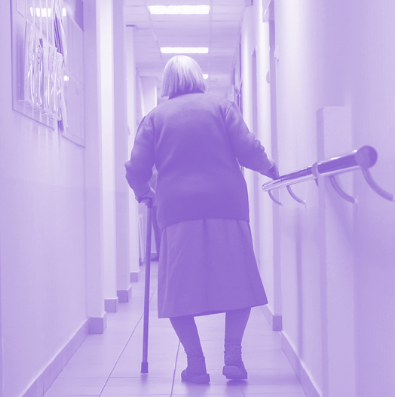Imbalance echoes in old age
 New research shows how an imbalance in gender may affect aging.
New research shows how an imbalance in gender may affect aging.
The study suggests men tend to have better resources to help them cope with the challenges of growing older.
Experts looked at differences in the ageing experience of older people across 18 OECD nations, finding that men are especially advantaged in income and wealth, are much more likely to be financially secure, be engaged in paid work, and spend fewer years in ill health than women in later life.
While women in OECD countries have an average life expectancy that is over three years longer than men, they spend more years in poor health.
Although most OECD countries have achieved universal health coverage, the disproportionately greater risk of disability and ill health in women increases their likelihood of needing long-term care. Women also earn less and are more likely to live alone at the end of their lives.
“Ageing societies reinforce the prevailing gender norms in which men continue to be allocated the majority of opportunities, resources, and social support”, says lead author Dr Cynthia Chen from the National University of Singapore in Singapore.
“With the world's population ageing at an unprecedented rate, and the ratio of older women to older men expected to increase, there is an urgent need to challenge the structural and policy biases that favour men.”
Senior author Professor John Rowe from Columbia University, USA, adds, “Stark income-based inequalities suggest ample room for improving women’s standing in paid work, job opportunities, and retirement income”.
“Addressing these gender disparities will not only benefit society by increasing women’s long-term savings and old-age security, but may also enable women to live longer independently and in better health, and could have positive knock-on effects for the next generation by reducing the burden of unpaid informal caregiving by younger women.”
Countries vary widely in their policies and services to support the wellbeing of older people, but little is known about the differences in the ageing experience for men and women, despite the substantial gender differences in life expectancy and societal roles.
The findings reveal that differences between men and women are largest for societal integration, including social support and living with others.
This gender disparity is driven by women often outliving their partners and therefore living on their own towards the end of their lives, despite being more socially connected than men.
Similarly, in all 18 countries, men were more likely to have higher levels of productivity and engagement and financial and personal security than women. For all countries, older men had a 6 per cent higher average work force participation rate and retired on average 1.7 years later than women.
“Our findings underscore the importance of considering gender-specific needs when developing policies and programmes for ageing societies. Even the top-performing countries have considerable room for improvement,” says Dr Chen.
According to Professor Rowe, “Replicating successful programmes and policies, such as Norway’s More Years – More Opportunities strategy for an ageing friendly society and Sweden’s National Action Plan on Policy for the Elderly, is critical to ensure that the ageing experience in all countries comes with longer years of healthy, active, and productive life for both men and women.”
The authors propose four measures to help address gender bias and inequality in societal ageing:
-
assessing minimum income requirements for healthy living in older people and minimum pensions and income standards to remove barriers to health care
-
addressing older adults’ social isolation to improve emotional and mental wellbeing
-
introducing national policies to tackle the lower economic standing of older women (for example, by increasing pension benefits and providing tax incentives for older workers and their employers)
-
tailoring social policies to different gendered experiences to improve societal welfare and reduce labour market inefficiencies (for example, by adopting flexible working hours to make it easier for women to work)








 Print
Print